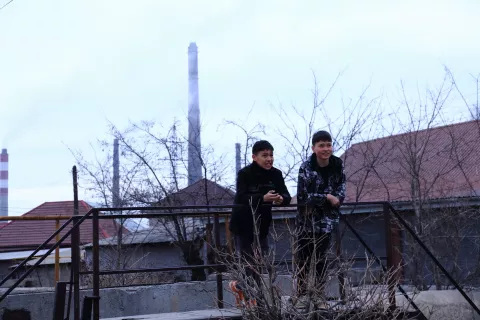An evidence-informed approach to the treatment of COVID-19
Essential medicines, worth $100,000, funded by the European Union and supported by UNICEF, have been distributed for the Ministry of Health and Social Development
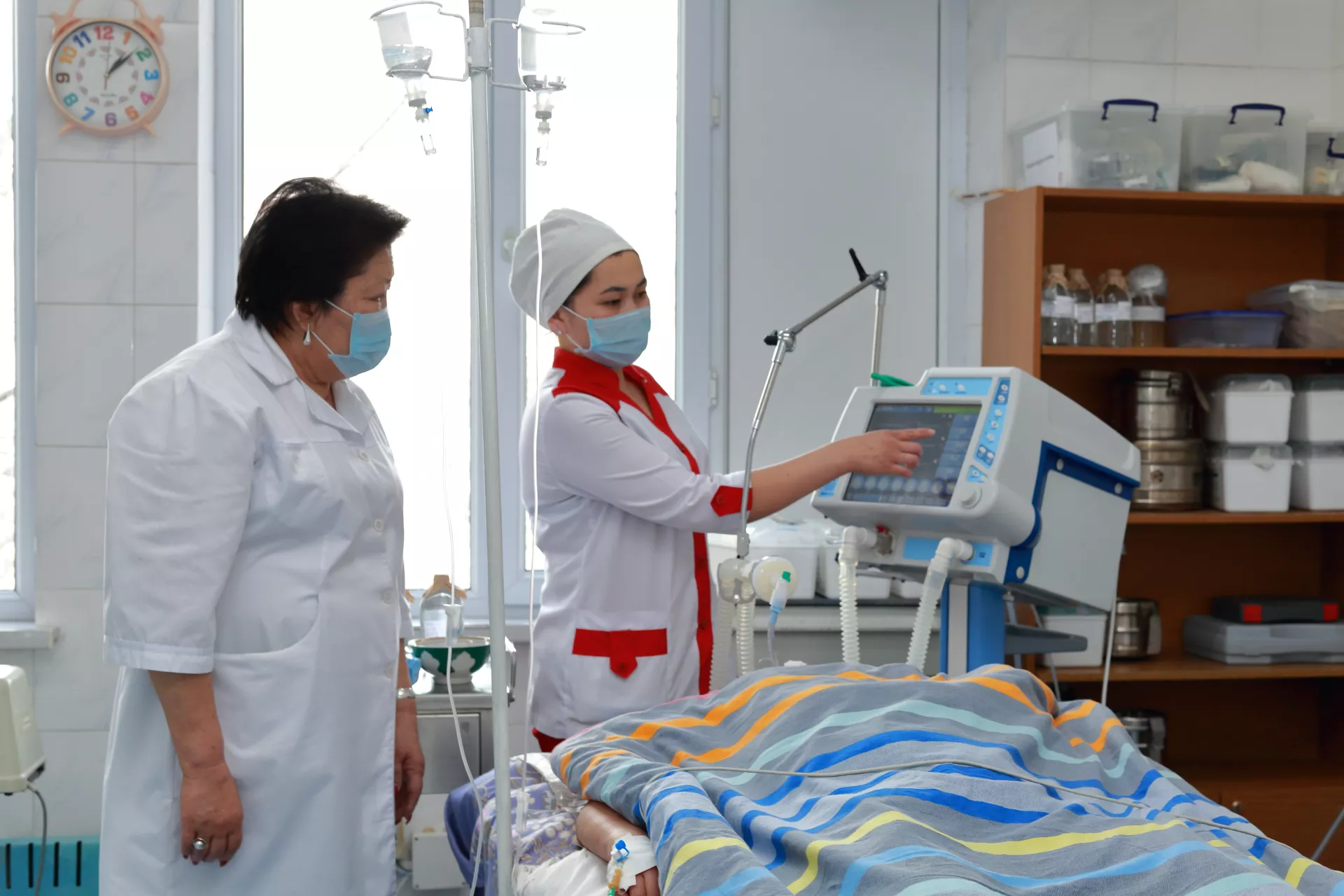
The COVID-19 pandemic reached its peak in Kyrgyzstan during the summer of 2020. The disease hit many hospitals in the country, overloading capacity and human resources. The district hospital of the Issyk-Kul Oblast, located in the town of Cholpon-Ata, has a maximum occupancy of 135 patients. But in June 2020, they had 40 to 60 patients referred to the hospital daily. At the same time, the hospital was putting additional beds and tents, and the medical staff experienced challenges with COVID-19 treatment.
"COVID-19 has drastically impacted our lives, especially the lives of children."
Gulmira Najimidinova, medical child health expert, describes the situation that Kyrgyzstan faced: "The main symptoms of COVID-19 were similar to those of flu, and later worsened to pneumonia. Even though children got negative PCR-tests, all of them had COVID-19 symptoms. Thus, there was an urgent need for guidance on diagnosis and treatment."
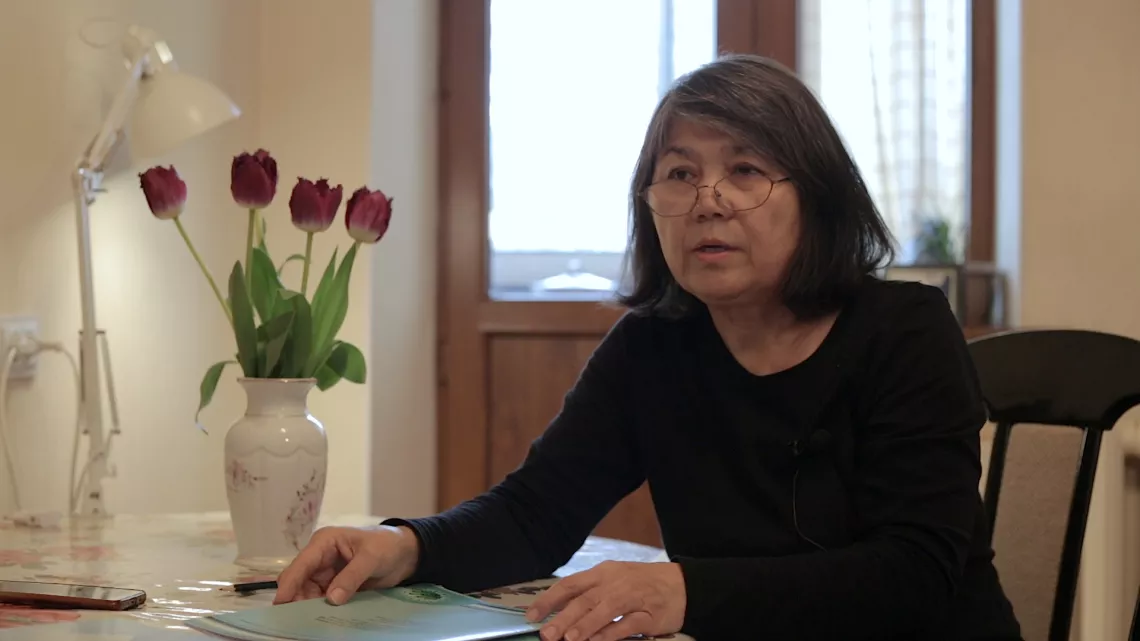
Since June 2020, the Ministry of Health and Social Development has a working group to develop protocols on the treatment of the COVID-19 based on evidence-based recommendations and practices. The working group proposed, among others, two treating protocols related to children: "Diagnostics and treatment of multi-system inflammatory syndrome in relation to COVID-19 in children and adolescents" and "Management and treatment of children and adolescents with mild and moderately severe forms of COVID-19 infection at a primary healthcare level" - The development and dissemination of the protocols were supported by UNICEF to have standardized and evidence-based approach in the treatment.
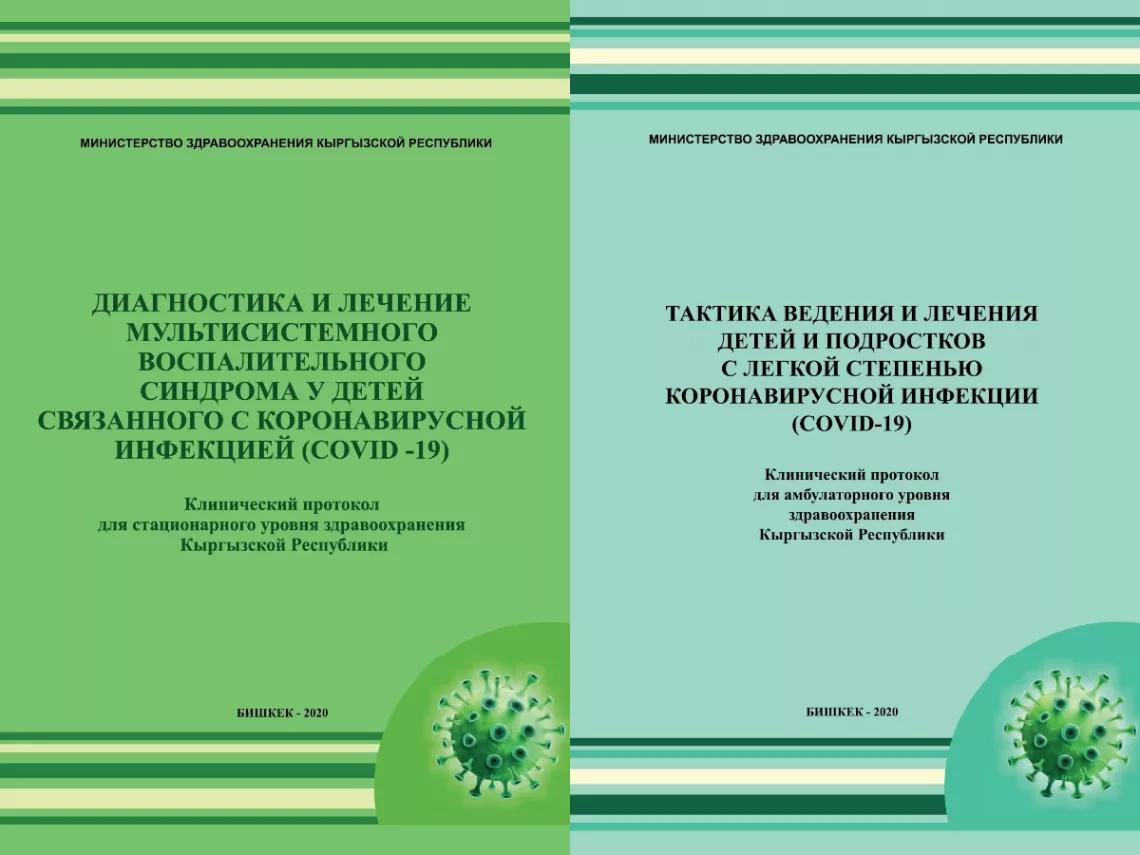
Gulmira Najimidinova was one of the working group members that developed the protocols. She explains: "The protocols are dedicated to managing and treating children with COVID-19 and include telemedicine via phone, WhatsApp, Zoom, Skype, etc. The two protocols also suggest the list of the antibiotics proven to be effective".
Later in 2020, the Ministry of Foreign Affairs of Kyrgyzstan requested to support the response to COVID-19 and address the shortage of essential medicines. The Ministry of Health and Social Development confirmed the list of the most needed medications for the country in line with the national clinical protocol to manage patients with COVID-19, including children.
Kaliman Mamatova, Deputy Director of the Center for the Development of Healthcare and Medical Technologies under the Ministry of Health and Social Development of Kyrgyzstan explains: "The protocols suggest to treat COVID with antibiotics, those which were supplied to the country by UNICEF with support of the European Union".
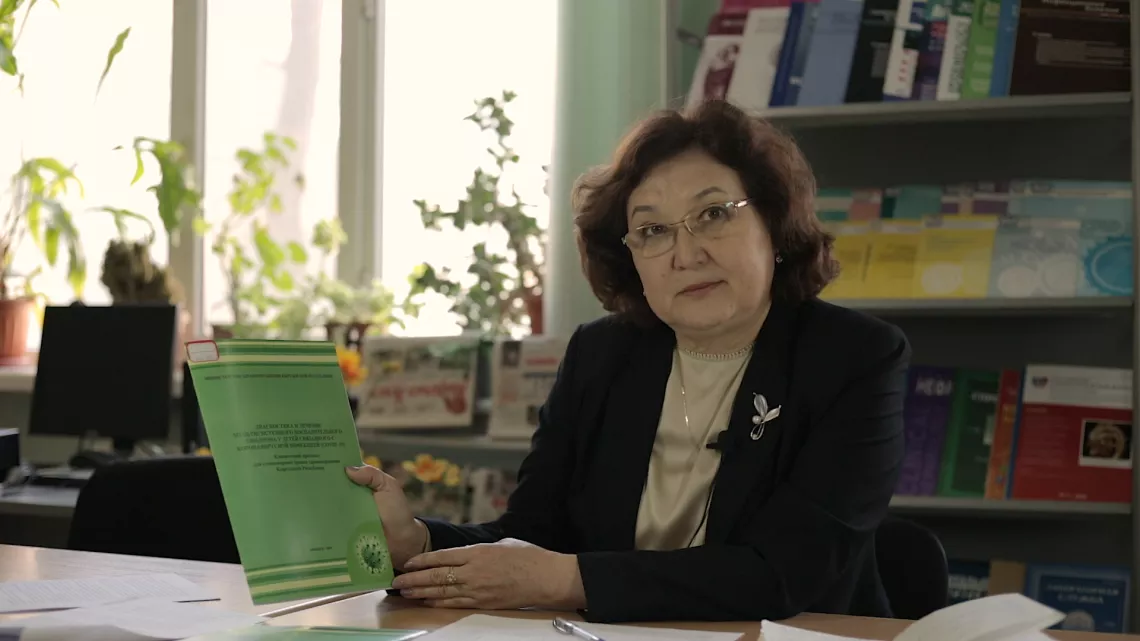
In February 2021, the Ministry of Health and Social Development received the next batch of medicines as part of a $100,000 grant to respond to the COVID-19 pandemic, including heparin and antibiotics, funded by the European Union Directorate-General for Humanitarian Aid Operations (ECHO) and supported by UNICEF for the Ministry of Health and Social Development. The supplies, which have reached hospitals like the district hospital of the Issyk-Kul Oblast , included 1,000 packages of co-amoxiclav, 500 packages of ceftriaxone and 1,000 packets of heparin.
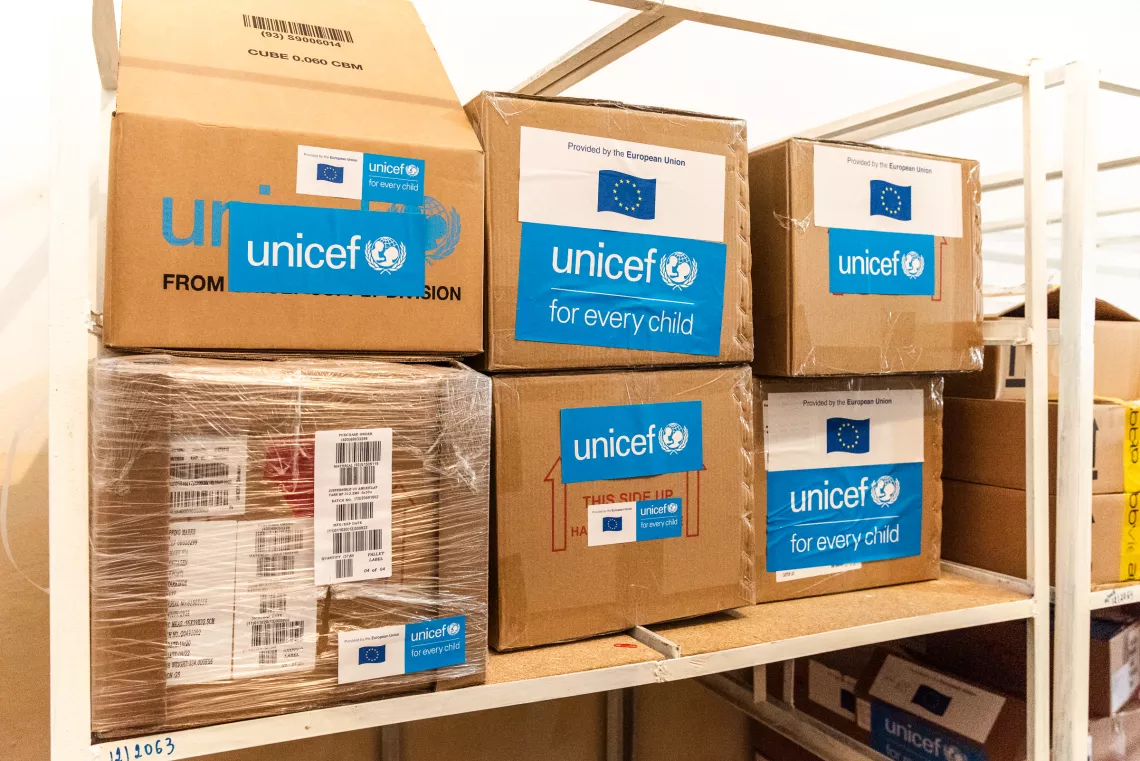
Another batch is about to be distributed in June 2021 to continue the support to the Ministry of Health and Social Development, including antibiotics (clarithromycin), asthma inhalers (beclometa oral), corticoids (dexamethasone), along with ceftriaxone and co-amoxiclav.
COVID-19 presented many challenges in 2020, with the whole health system at a stretch and knowledge on COVID-19 still scarce. Compared to last year, this year, doctors look at the future more positively. With the proper protocols in place to treat patients and the required medicines arriving, and the support of international partners like the European Union and UNICEF, doctors and nurses feel much more confident and able to respond to the COVID-19 crisis.




